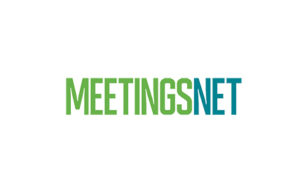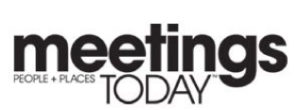Add your questions and discussion below the article or send them directly to SAFE for use in future articles and posts.
The coronavirus engenders uncertainty, panic, and fear of disrupting the most perfectly planned event. For companies with a vigilant event risk management strategy, there is certainty in having a vulnerability assessment for pandemics and a duty of care checklist to ensure that the planning team takes all prudent and reasonable steps to keep attendees as safe as possible from exposure to the virus while participating in your program.
As with SARS and Zika, it is impossible to predict how the coronavirus will affect international and US meetings and events. It is unlikely that your upcoming events will be affected even as much as a flu outbreak in your chosen destination. However, there are 4 duty of care steps a planner should follow to mitigate any impact of the virus on their event: RESEARCH, INFORM, RECOMMEND, PLAN.
Key actions for the planning team include:
- Determine if your event is in a red zone of coronavirus cases. Continue to monitor your event location in the CDC, WHO, OSAC, and US State Department. For US locations with any known cases or exposure include the City and County Department of Public Health and local medical services up to the start date of the event.
- Assess the demographics of your participants to identify risk of exposure from international attendees or attendees who have traveled internationally in the last 4 weeks.
- Engage your hotel, convention center, and venues in a pre-event safety discussion that includes understanding their emergency procedures to handle a pandemic during an event. Find out any statistics regarding past airborne illnesses in the location. Investigate the current state of preparation for coronavirus with all your event first responders.
- Review all contracts for the force majeure clause and any event cancellation insurance to determine if the “threat of a pandemic” and communicable disease are covered reasons for termination or reduction of your event attendance and attrition. Explore options to change dates or move the location.
- Confer with company travel management team to integrate travel safety bulletins with the event safety protocol.
- Inform your key decision makers of the risk level and possible financial implications.
- Recommend best alternatives including managing perception and concern for the hotels and suppliers impacted.
- Include a risk management policy statement on protecting the health of all attendees that includes advice to attendees who have not been vaccinated, have a compromised immune system, or who might be feeling sick when they arrive at the event.
- Advise attendees early and often of your company’s awareness of the potential for coronavirus exposure based on current public health reports and your commitment to a healthy and hygienic event environment. This could be communicated via the event website, attendee email blasts, and/or mobile apps.
- Publish “Stay Healthy – Know Before You Go” tips in your event registration process that include “How to prevent the spread of coronavirus,” and “What to do to avoid exposure to coronavirus while traveling to and from your event.” Have ongoing health tips in the event mobile app during the event.
- Have pre-event discussions on how you will handle an attendee who appears to be sick during the event. Do not leave this to a last-minute reaction by the planning team. It is more likely that you will not have a full coronavirus epidemic during the event but you will have an attendee who exhibits symptoms of a cold or flu, which will not be easily identified as coronavirus until it is too late to separate from the group.
- Develop an onsite crisis response plan to handle an outbreak of any illness during the event: model the plan for handling a food borne illness. Include a dedicated response team, know your medical contacts and procedures, and expand your crisis communication plan to include a “panic driven attack of the flu.” Include social media channels and rehearsed messaging to keep attendees informed and calm and the event moving.
- Document all the above in your risk management playbook!
Remember that the meeting planner is not the guarantor of the safety of the attendees. However, duty of care does mean that the planner must investigate the risk of coronavirus, advise the attendees of the current state of coronavirus in the location, and provide all the best hygiene and health oversight practices possible at the event.





